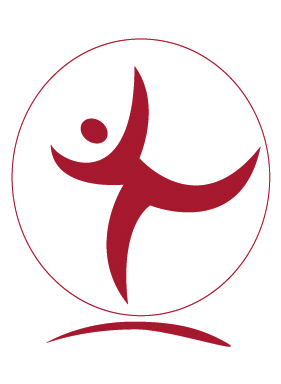Select an item by clicking its checkbox

Mission-Aligned Learning for 2027 and Beyond: Fostering Student Success through Inclusive and Experiential Learning
Proposal abstract :
Our department applies for a Wabash Grant to examine and refine how our teaching of signature courses in religious and theological studies reflects St. Edward’s University’s commitment to inclusive, future-oriented education. Through four day-long workshops, we consider key aspects of student learning and experiential approaches to teaching religious and theological studies to be reflected in our curriculum. In addition to revising key courses in areas of justice, we explore how to intentionally prepare students for professional contexts with attention to both Austin partnerships and career trends. These aims will involve exploration of pedagogy that concerns helping students articulate their own vision for the future and also entails discussion of alumni experiences of our curriculum and their journey in self-actualization. The department intends to present the results of this self-study at the Teaching Showcase Symposium in 2024, a juried conference that highlights pedagogy in a small liberal arts, mission-driven college.
Learning Abstract :
How can the Religious and Theological Studies Department enrich and foster student learning in the signature courses we teach to further align with St. Edward's University's Strategic Plan 2027? In parcular, we mean to strengthen in our teaching of signature courses (RELS 1305 Living a Meaning Life and RELS 4350 Experienal Learning and Internship in Religious Studies) inclusive and future-oriented educaon.
Through four workshops, our Department in consultaon with St. Edward's colleagues will examine these signature courses with the following issues in mind. Our first goal is to develop the curriculum and pedagogy to foster a more just world. As a department in a HSI, we aim to explicitly develop pracces to best reflect our students and address their experiences and concerns. Expressing this commitment is in alignment with our university, an independent Roman Catholic instuon within the Holy Cross tradion. Our second goal is to restructure signature courses so that students might make a difference locally, invest in community, and benefit from experienal learning. We seek to reshape curriculum and pedagogy to more expressly engage in Ausn partnerships, working with disncve constuencies. Our third goal is to revise signature courses to equip students to realize the connecon between their own deep sense of calling and the crical needs of our mes. These courses will also benefit from our awareness of alumni's experiences so that we know how St. Edward's students fare beyond the campus. Complemenng this study, we will gather recent data from professional organizaons about how degrees in our fields are being used and what contemporary employers are communicang about the humanies and liberal arts degrees, informaon that we will share in our signature courses to help students in reflecon and discernment.
This project addresses the equity gap that can exist in many institutions of higher education and
Our department applies for a Wabash Grant to examine and refine how our teaching of signature courses in religious and theological studies reflects St. Edward’s University’s commitment to inclusive, future-oriented education. Through four day-long workshops, we consider key aspects of student learning and experiential approaches to teaching religious and theological studies to be reflected in our curriculum. In addition to revising key courses in areas of justice, we explore how to intentionally prepare students for professional contexts with attention to both Austin partnerships and career trends. These aims will involve exploration of pedagogy that concerns helping students articulate their own vision for the future and also entails discussion of alumni experiences of our curriculum and their journey in self-actualization. The department intends to present the results of this self-study at the Teaching Showcase Symposium in 2024, a juried conference that highlights pedagogy in a small liberal arts, mission-driven college.
Learning Abstract :
How can the Religious and Theological Studies Department enrich and foster student learning in the signature courses we teach to further align with St. Edward's University's Strategic Plan 2027? In parcular, we mean to strengthen in our teaching of signature courses (RELS 1305 Living a Meaning Life and RELS 4350 Experienal Learning and Internship in Religious Studies) inclusive and future-oriented educaon.
Through four workshops, our Department in consultaon with St. Edward's colleagues will examine these signature courses with the following issues in mind. Our first goal is to develop the curriculum and pedagogy to foster a more just world. As a department in a HSI, we aim to explicitly develop pracces to best reflect our students and address their experiences and concerns. Expressing this commitment is in alignment with our university, an independent Roman Catholic instuon within the Holy Cross tradion. Our second goal is to restructure signature courses so that students might make a difference locally, invest in community, and benefit from experienal learning. We seek to reshape curriculum and pedagogy to more expressly engage in Ausn partnerships, working with disncve constuencies. Our third goal is to revise signature courses to equip students to realize the connecon between their own deep sense of calling and the crical needs of our mes. These courses will also benefit from our awareness of alumni's experiences so that we know how St. Edward's students fare beyond the campus. Complemenng this study, we will gather recent data from professional organizaons about how degrees in our fields are being used and what contemporary employers are communicang about the humanies and liberal arts degrees, informaon that we will share in our signature courses to help students in reflecon and discernment.
This project addresses the equity gap that can exist in many institutions of higher education and